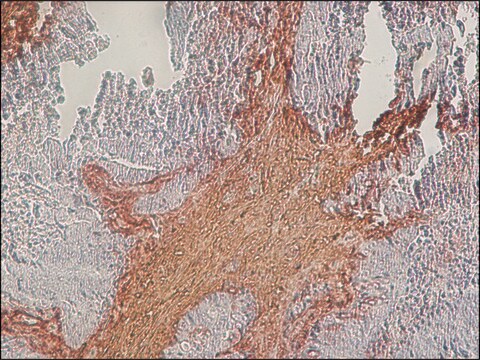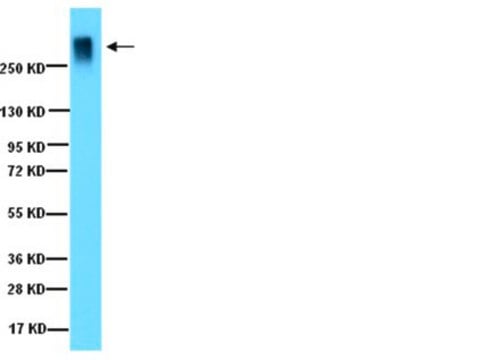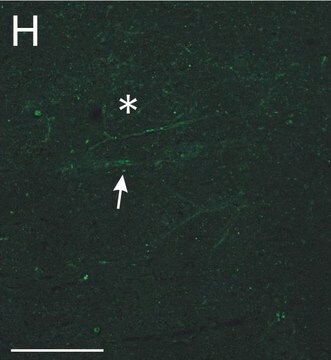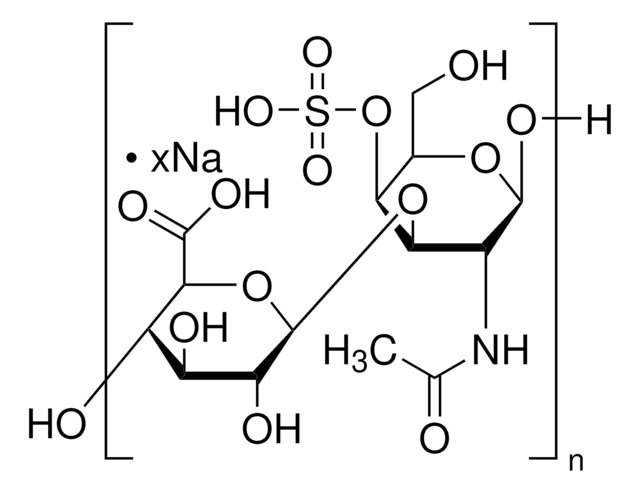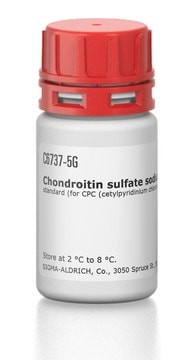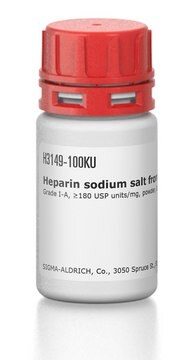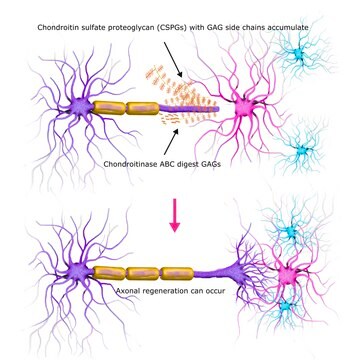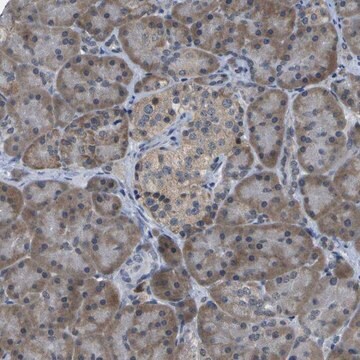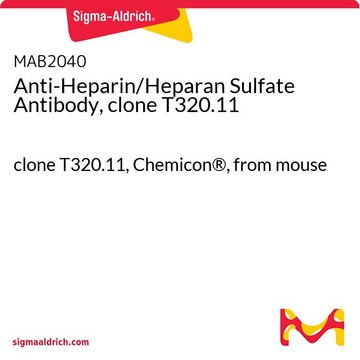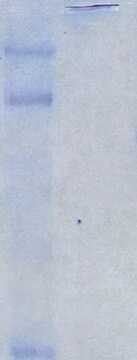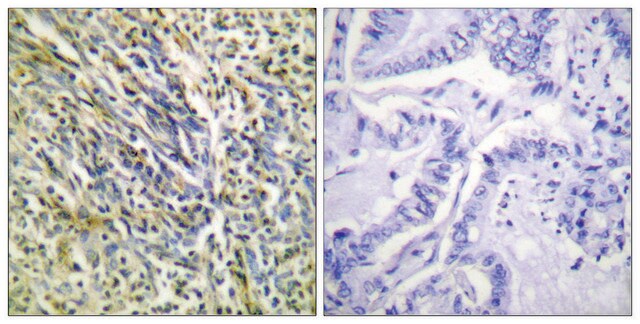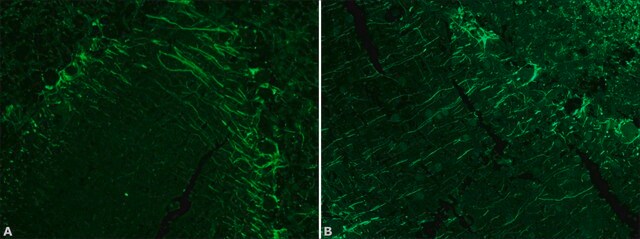Key Documents
C8035
Monoclonal Anti-Chondroitin Sulfate antibody produced in mouse
clone CS-56, ascites fluid
Synonim(y):
Chondroitin Sulfate Antibody, Chondroitin Sulfate Antibody - Monoclonal Anti-Chondroitin Sulfate antibody produced in mouse, Cs56 Antibody
About This Item
Polecane produkty
pochodzenie biologiczne
mouse
Poziom jakości
białko sprzężone
unconjugated
forma przeciwciała
ascites fluid
rodzaj przeciwciała
primary antibodies
klon
CS-56, monoclonal
reaktywność gatunkowa
chicken, bovine, mouse, human, pig, rabbit, rat
metody
indirect immunofluorescence: 1:200 using bovine mammary gland epithelial (BMGE) cells
microarray: suitable
izotyp
IgM
numer dostępu UniProt
Warunki transportu
dry ice
temp. przechowywania
−20°C
docelowa modyfikacja potranslacyjna
unmodified
informacje o genach
human ... ACAN(176)
mouse ... Acan(11595)
rat ... Acan(58968)
Opis ogólny
This product can be found as purified product that was produced using cell culture hybridoma (SAB4200696)
Specyficzność
Immunogen
Zastosowanie
- in immunohistochemistry as primary antibody to study of spinal cords and brain cryosections.
- in ELISA and western blot for purification of soluble forms of myelin-associated glycoprotein (MAG) and neural cell adhesion molecule (N-CAM).
- in flow cytometry studies.
- as primary antisera in a study of TGF-β regulation.
Działania biochem./fizjol.
Przechowywanie i stabilność
For extended storage, the solution may be frozen in working aliquots. Repeated freezing and thawing is not recommended. Storage in "frost-free" freezers is not recommended. If slight turbidity occurs upon prolonged storage, clarify the solution by centrifugation before use.
Inne uwagi
SAB4200696 Anti-Chondroitin Sulfate antibody, Mouse monoclonal
clone CS-56, purified from hybridoma cell culture
Oświadczenie o zrzeczeniu się odpowiedzialności
Nie możesz znaleźć właściwego produktu?
Wypróbuj nasz Narzędzie selektora produktów.
produkt powiązany
Kod klasy składowania
12 - Non Combustible Liquids
Klasa zagrożenia wodnego (WGK)
WGK 1
Temperatura zapłonu (°F)
Not applicable
Temperatura zapłonu (°C)
Not applicable
Certyfikaty analizy (CoA)
Poszukaj Certyfikaty analizy (CoA), wpisując numer partii/serii produktów. Numery serii i partii można znaleźć na etykiecie produktu po słowach „seria” lub „partia”.
Masz już ten produkt?
Dokumenty związane z niedawno zakupionymi produktami zostały zamieszczone w Bibliotece dokumentów.
Klienci oglądali również te produkty
Produkty
Glycosaminoglycans are large linear polysaccharides constructed of repeating disaccharide units.
Nasz zespół naukowców ma doświadczenie we wszystkich obszarach badań, w tym w naukach przyrodniczych, materiałoznawstwie, syntezie chemicznej, chromatografii, analityce i wielu innych dziedzinach.
Skontaktuj się z zespołem ds. pomocy technicznej